How to Keep Bears Away While Camping (8 Tips and Tricks)
While it is amazing to see a bear in the wild, it isn’t so great to have one on your campsite. In this post, you’ll learn how to keep bears away while camping – with everything from choosing the best campsite, setting up safely, cooking, and tending to your pets.
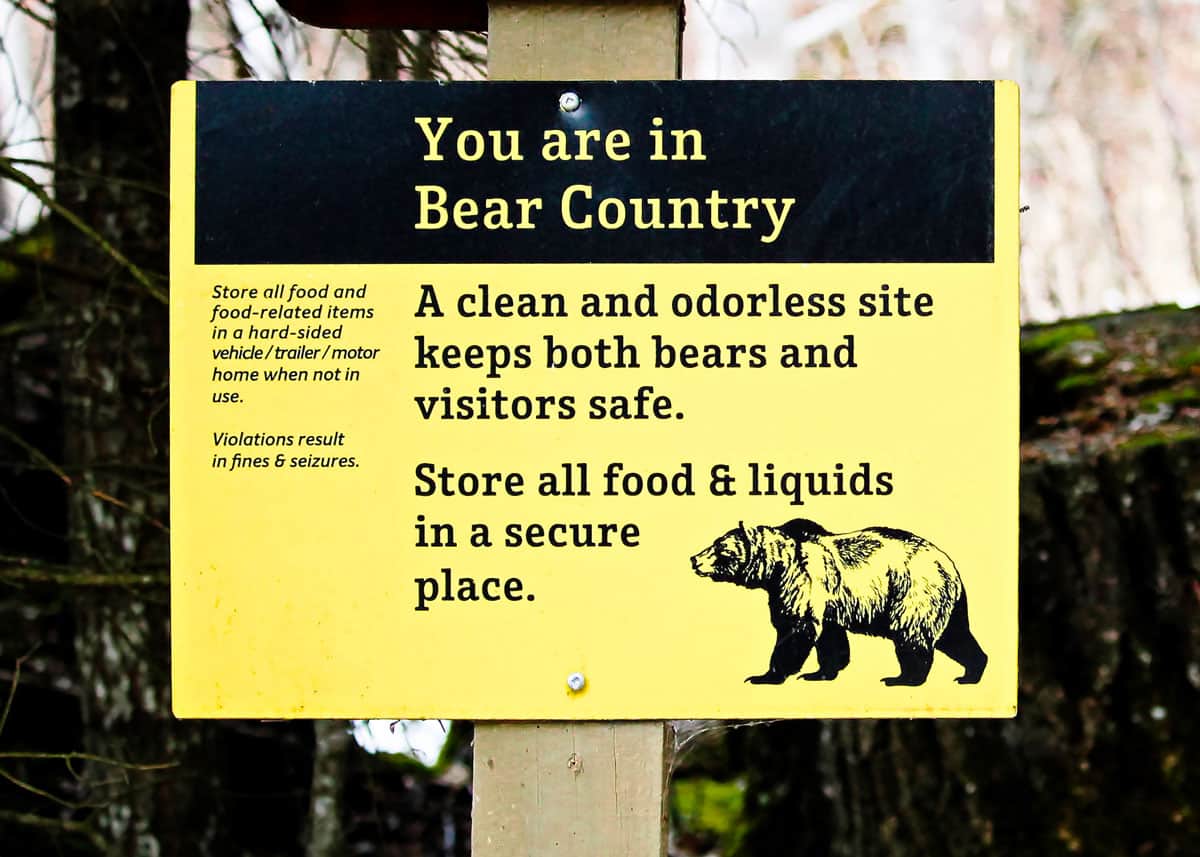
How to Keep Bears Away From Your Campsite
Bears are common across much of North America. There are black bears, brown bears, and the infamous grizzly bears. The following tips and tricks are the result of my research on how to safely keep bears away while camping.
A friend of mine shared this first-person account:
“The very first time I went camping, I saw signs warning about grizzly bears in the area. However, being young, inexperienced, and naive I chose to ignore them. I thought encountering a bear in the wild was rare, and by the time I went to bed, I had put it out of my mind.
Later that night, my friend woke me up in a panic. I soon heard why. A large animal was circling our tent, panting heavily. I slowly unzipped the tent only enough to peak outside, and immediately grabbed the bear spray.
As I lay still, contemplating death by grizzly, I vowed to never again enter bear territory without adequate knowledge.
My friend and I got lucky that night. After 5 agonizing minutes, the bear just wandered away. That was one of the scariest experiences of my life, and I have never entered bear country without being prepared since.” ~ Sarah
If you would rather avoid this situation, then read on.
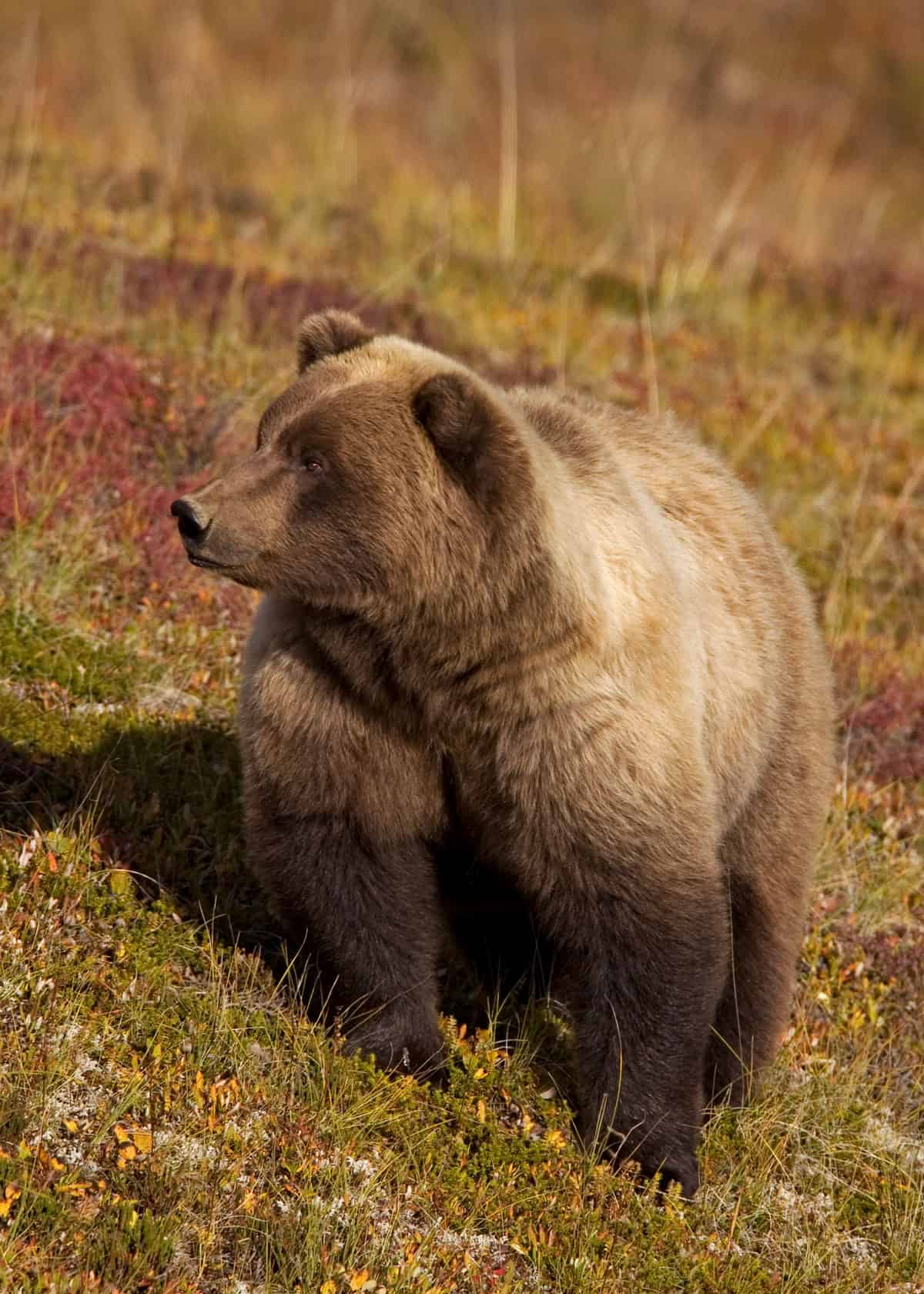
How to Deter (and Scare) Bears Away
1. Think Like a Bear When Choosing Your Campsite
Thinking like a bear is the initial step in how to keep bears away while camping. If a place looks good to a bear, stay away! You want the most boring campsite possible.
These large animals are attracted to food sources such as berry patches and lakes. Before setting up camp, it is also important to check the area for any signs of bear activity.
- Animal carcasses – chances are you don’t want to meet the winner of that fight. And it might attract other hungry mammals.
- Bear droppings – they only scat where they are at.
- Bear tracks – a sure sign to keep looking for a site.
- Grizzly diggings – walk away quickly and don’t look back.
- Wild game trails – sometimes they are innocent, sometimes they aren’t.
- Claw marks on trees – this is a bear’s territory, and it won’t share nicely.
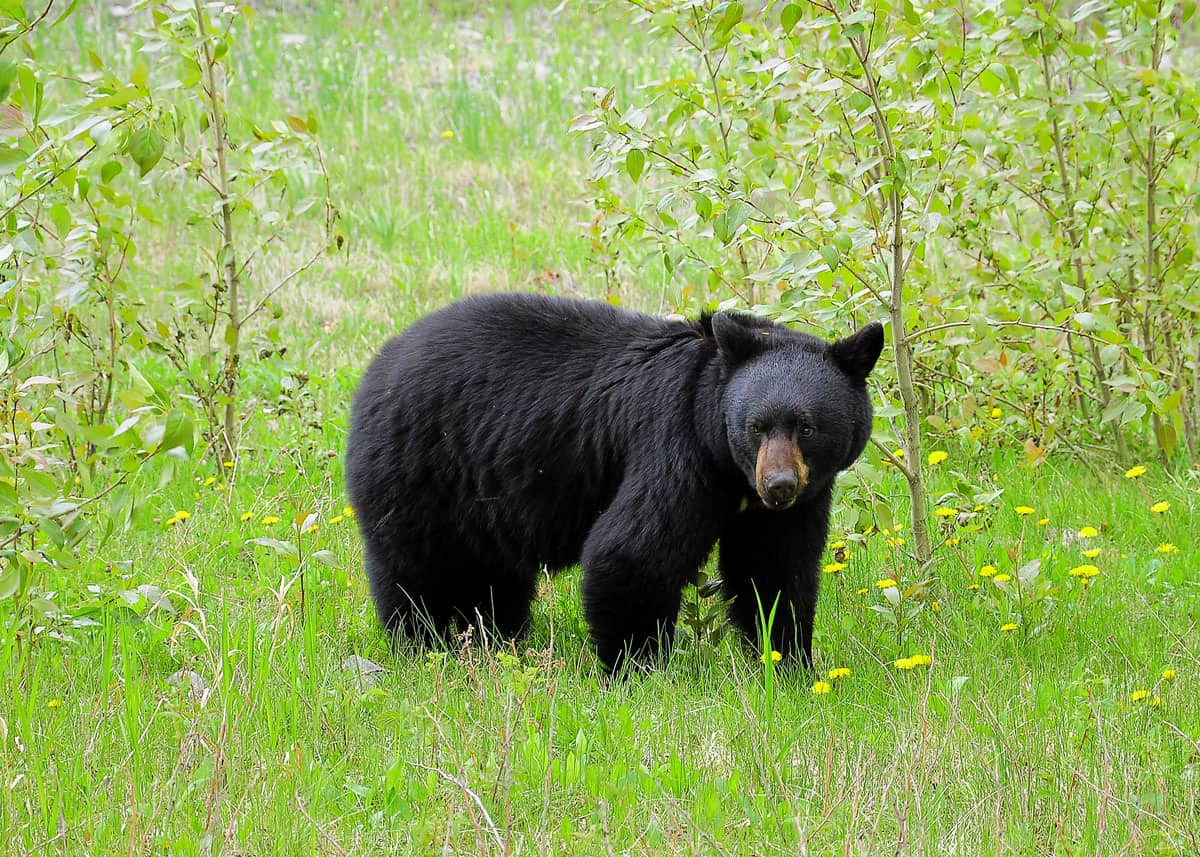
How are your compass skills? Here’s how to use a compass without a map!
2. Observe the Bear Triad Campsite Set Up
A smart setup is key in how to keep bears away while camping. In this case, we want the 3 parts of our campsite to make a triangular floor plan.
The 3 areas include a place for sleeping, hanging food, and cooking. Each of these should be located 100 yards from the next.
First, set up your shelter. You can place it anywhere, but keep in mind you want it to be upwind of the kitchen and the hanging food.
If your sleeping area is downwind, you will be the first tasty morsel the animal encounters. Now, think of your tent as the top peak of the triangle, and the other two as the points of the base.
Place the food cache and kitchen area downwind of your tent.
Here are 9 ways to make coffee on your next camping trip.
3. Choose Food Wisely
Food choice is something you should keep in mind when deciding how to keep bears away while camping.
The more delicious the food smells to us, the more delicious it will smell to other carnivores. Unfortunately, this means no bacon, fish, or steak.
Warning: Remember to never leave edibles unattended for any amount of time. Not even for a bathroom break!
4. Store Food Wisely
This tip on how to keep the bears away while camping may save your life. At a minimum, storing food wisely can prevent a scary encounter.
In the case where you are near your vehicle, put any and all scented items into a cooler or other storage container and store them in your trunk. However, you can protect yourself away from your vehicle by storing your food in one of following ways.
- Create a bear hang. We can’t talk about how to keep bears away while camping without including the classic bear hang (see below for instructions and video). For those that rarely camp, a bear hang is an affordable alternative to the more expensive food storage options. However, you must have a suitable tree. That means the branch you choose must be at least 15 feet high and extend at least 4 feet from the tree trunk. You want to make it as difficult as possible for the bear to reach your edibles. Try to choose a tree no one else has used, because bears have good memories when it comes to food. Sometimes you can tell by wear marks around branches.
- Purchase bear kegs or tubes. Bear tubes are the perfect answer to how to keep bears away while camping in the back country. These products are lightweight, convenient, and come in different sizes depending on the manufacturer. The typical food storage cache weighs between 2 and 3 pounds, which makes it perfect for backpackers. The average container is made to carry one person’s food for 6 days. However, if you are a weekend warrior you may want to look for a smaller, lighter model built for 3 days. When shopping around, make sure any canister you purchase is certified by the Interagency Grizzly Bear Committee. To find the best one for you, we suggest taking your bag when you try out these products. If you want to try before you buy, local outdoor stores and even the Forest Service rents out bear tubes. This type of food storage container should also be stored 100 yards away from your sleeping area.
- Use coolers, odor-proof plastic bags, or even unscented trash bags. This suggestion on how to keep bears away while camping is only for car campers. If you are in the backcountry you should strive to only use bear tubes. All 3 of these items can help deter bears from coming into your vehicle after food or toiletries. Always try to store scented things in the trunk, but if you own a hatchback or RV try to hide the items. I would recommend odor-proof bags for cases like these because bears have been known to break into homes through the windows.
If you only take away one thing from this article let it be this: NEVER TAKE ANYTHING WITH SCENT NEAR YOUR TENT!
How to Make a Bear Hang
To make a handy bear hang, you will need the following: bear bag, 40 ft. rope, mini carabiner, rope bag, and a small twig.
If you do not have a bear bag, you can use a trash bag. Now, attach the carabiner to the rope and clip it onto the throw bag. Put something heavy such as rocks in the bag, and toss it over your chosen branch.
Next, unclip the throw bag and clip onto the bear bag. Thread the loose end of the rope through the carabiner. This creates a hoist, so you can simply pull the loose end to raise your goodies.
Once the bag is all the way up, tie your twig in the rope as high as you can reach. Finally, release the rope gently until the twig stops the container. Congratulations! You have just made the Pacific Coast Trail (PCT) bear hang!
5. Do After Dinner Chores ASAP
Cleaning plays a big part in how to keep bears away while camping. It is extremely important to gather every piece of macaroni or sliver of a chip. Even something as small as a grain of popcorn can attract a hungry bear.
That is why cleanup must be done as soon as you finish eating. The longer the delicious scent of freeze-dried meals hangs in the air, the more likely it will attract animals.
Did you know bears can smell things from a mile away? So when you clean dishes, do not do it anywhere near your triangle.
Instead, make sure you are plenty far away and downwind of your shelter. Developed campsites usually have designated areas to wash your belongings.
Contrary to what some say, do not bury food scraps or garbage. Instead, store waste in bear-proof containers until you can pack it out. If you are near a designated campsite, make sure any trash cans you use are bear-resistant.
As an alternative, you can burn leftover food. However, if something isn’t completely destroyed the scent will remain. Since humans do not have the superhuman nose of a bear, we do not recommend this method.
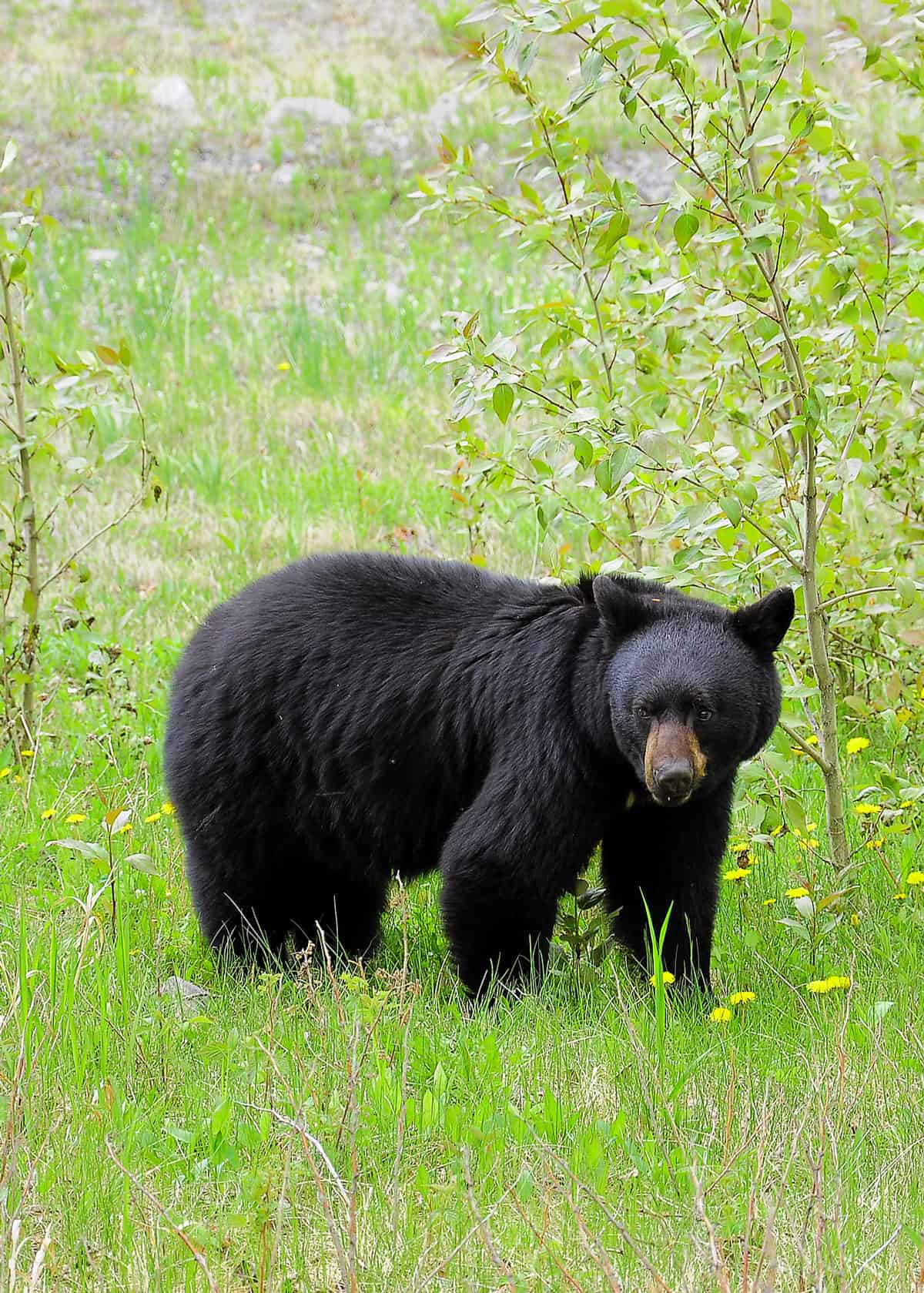
6. Keep Everything Else Clean
Everything else includes specific clothing for cooking. It sounds a bit paranoiac, but the nose of a bear is 7 times stronger than a bloodhound!
The delicious scent of your dinner on your clothing can attract bears to your tent for miles. Be sure to stay in your kitchen and food storage area while wearing these clothes.
As soon as you are finished cleaning up from your meal, change your clothing a good distance from your triangle. If you are car camping, bag and place scented clothes in your trunk. If you are backpacking, go ahead and store them with your food.
Bears are attracted to anything that smells, including toothpaste! That is why you must be careful when brushing your teeth, especially while backpacking. There are a few ways to do so.
Some back-country campers do not use toothpaste, and only brush with water. Others bring a bit of baking soda along. This is a great lightweight option that is relatively scent-free, but you will still want to spit away from your triangle. Better safe than sorry!
Others use toothpaste and swallow it. If you choose this method you only need a tiny bit of toothpaste.
How to keep bears away while camping includes how to take care of bodily needs. When using the bathroom outdoors, you will want to follow leave no trace principles. This means picking a place at least 300 feet from a trail or any water source.
Additionally, you will want to dig a hole 6-8 inches deep. So, bring along a lightweight trowel.
In terms of toilet paper, you can either leave it in the hole or carry it out. If you choose to carry out, use a few airtight bags or an odor-blocking plastic bag to block the smell.
For women, having your period while in the backcountry can be annoying. However, there are a few ways to make it much easier. In fact, there are a few options on the trail.
Unscented tampons and a menstrual cup are both small and easy to dispose of. For tampons, simply bring along a few plastic freezer bags for storage and organization. Ultimately you will want to store this trash with everything else you are packing out in your bear tube.
If you don’t want to have your period at all, skip your next inactive pills and start right away on a new pack.
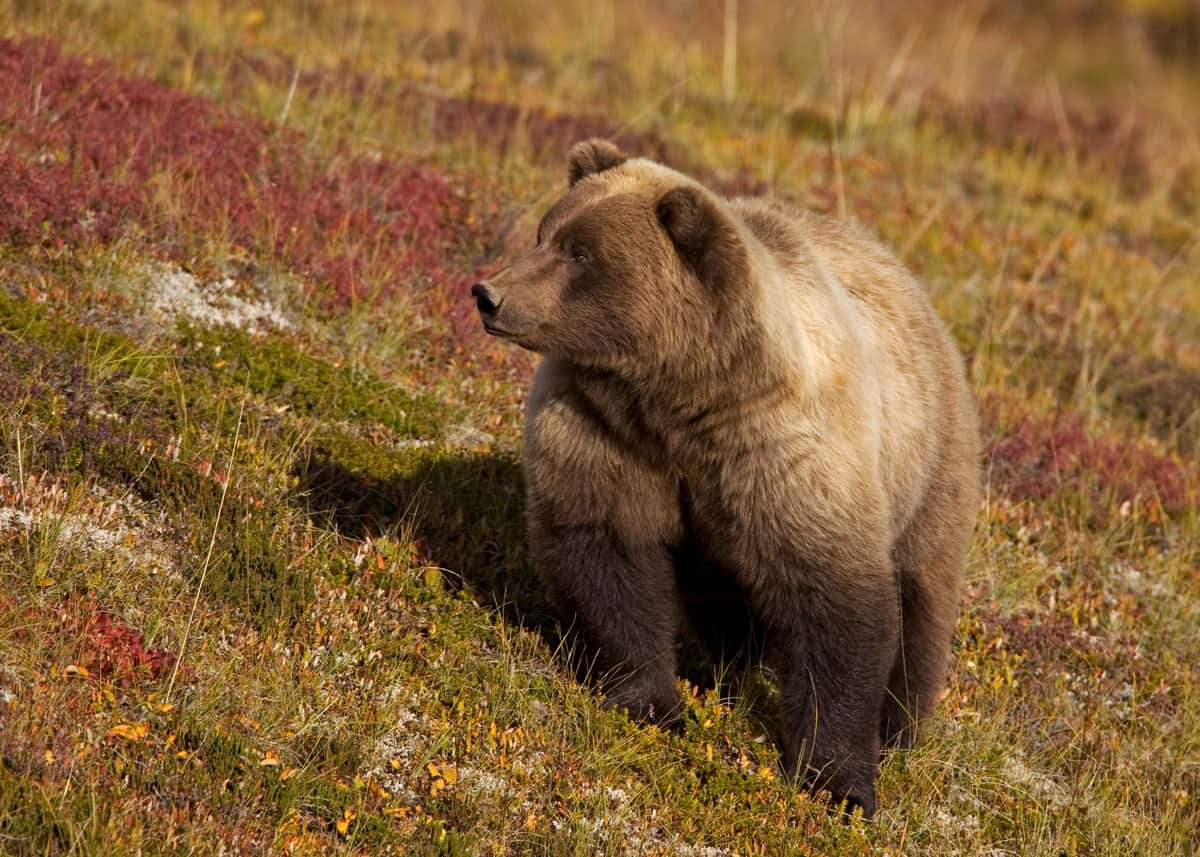
7. Tend to Your Pets
When in bear country, pets must be treated more like tiny humans than normal! Pet food should be kept with the human food, and away from your site. Never feed your pets anywhere near your sleeping location.
Additionally, keep your animals on a leash at all times. Bears won’t think twice about eating your family pet.
Keep in mind that wild animals are not your pets. It is dangerous to feed them because it can attract bears to your location!
8. Bear Fence
One of the more expensive answers to how to keep bears away while camping is a bear fence. This product forms a 6000-volt barrier around your tent.
The bear won’t die, but the pain should be enough to scare it away. Although black bears can become violent, bear fences are better suited for locations with polar bears and grizzlies.
3 Bear Safety Tips for Campers
While the majority of the time, running into a bear is unlikely, it only takes one encounter to leave a lasting impression. Maybe you’re camping with friends for the weekend. Perhaps you’re hiking with a loved one.
You look up, and suddenly you see a bear staring at you. Are you prepared with the best way to respond if you encounter a bear in the wild?
As you think through this possibility, here are a few basics to keep in mind:
- Let bears know you’re present — but still realize this may not deter them. The more noise you make, the clearer you signal to bears that you’re in the area. This will scare some bears away, so it’s worth doing. Keep in mind, however, that others, used to the idea of humans in the woods, will be undaunted.
- Avoid smells that attract bears. The cartoon image of bears eating honey isn’t pure fiction; bears like sweets. Remember, when leaving candy, fruit or other sweet-smelling items out in the open, you are asking bears to come to you. Likewise, when you use soaps or perfumes with sweet scents, you attract these animals.
- Always try to stay calm. The first thing you’ll likely want to do when you see a bear is run — but this can trigger the bear’s prey reflex, causing it to chase and attack you. Avoid running or rapid movements. If you do encounter a bear, try to stay calm.
Interested in learning more about how to handle a bear encounter? View the slideshow for six bear safety tips to remember whenever you’re in the wilderness.
Bear Safety Tips created by SABRE.
Be Proactive, Not Afraid
While camping in bear country, it is important to be proactive in avoiding these predatory animals. Anything can happen, but by trying out some or all of the tips and tricks above you can reduce your chances of seeing a bear significantly.
Adequate preparation can decrease your fear and increase the chance you will act level-headed. If all else fails, make sure to carry a can of bear spray at all times.
Your Turn
How will you be safe on your next camping trip to bear country? Share your tips and plans below!

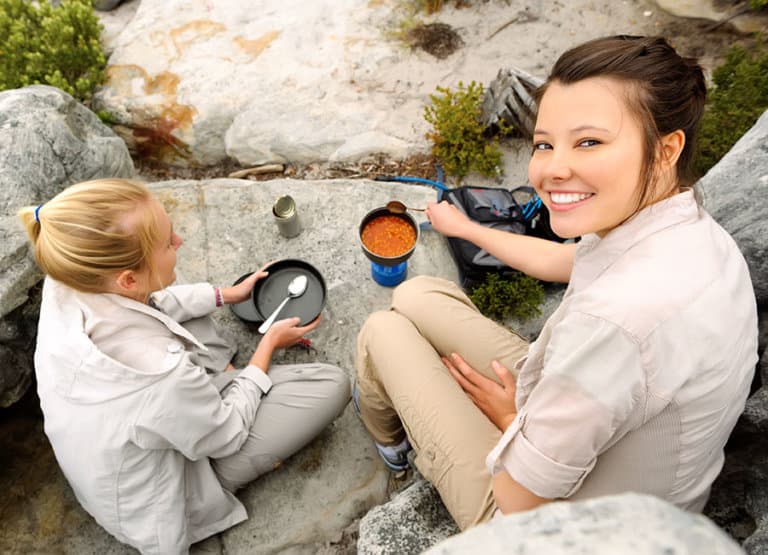
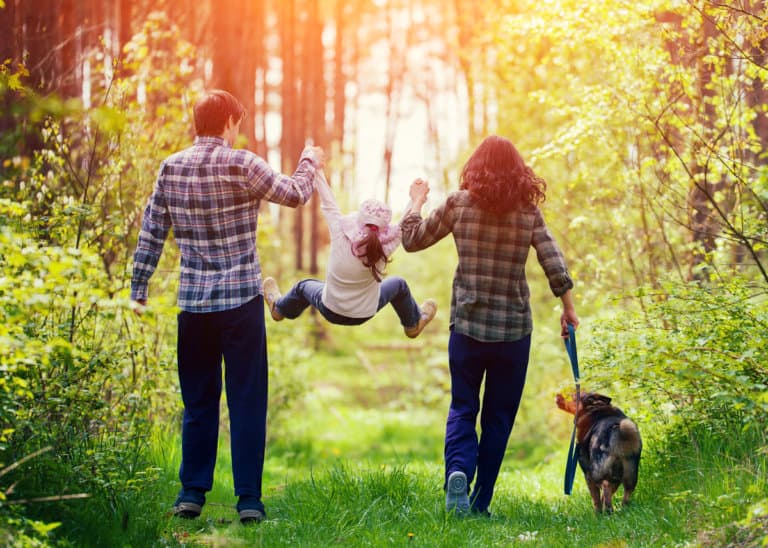
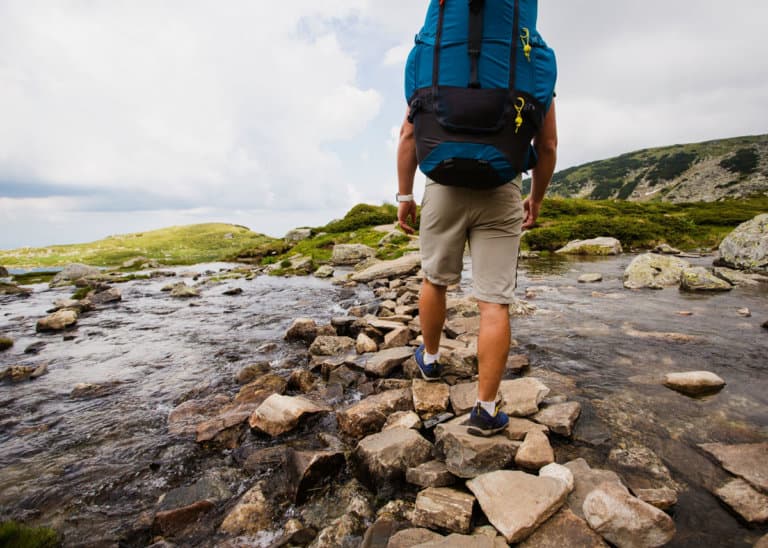
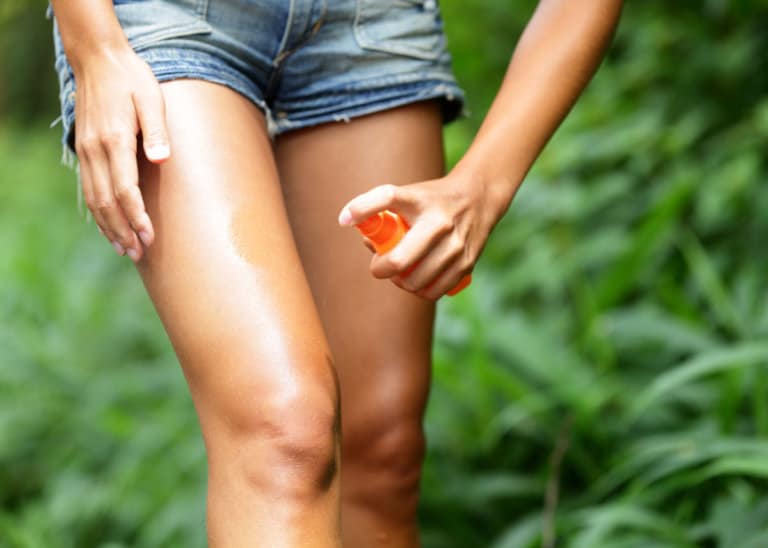
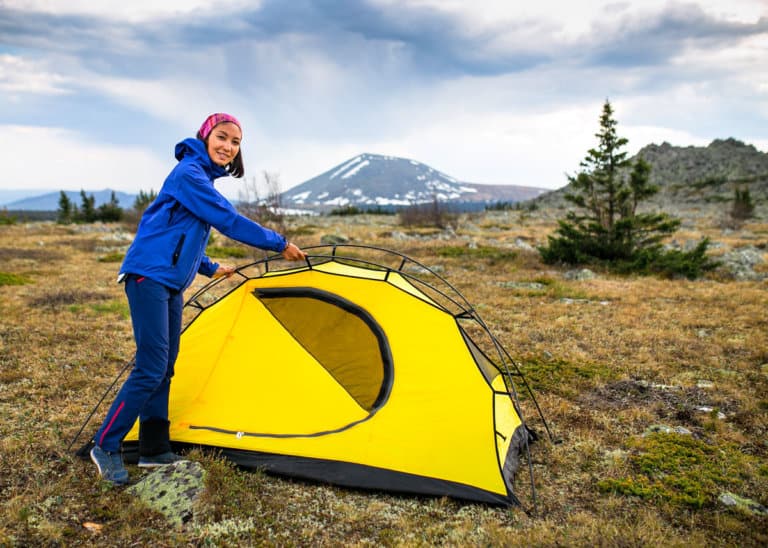
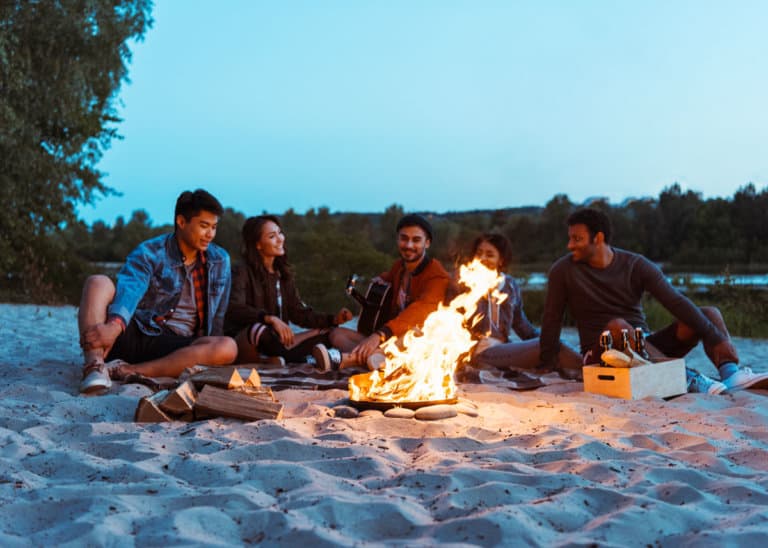
Unopened cans of food? Do they need to be hung from bear bags?
What about camping in bear country if you are nursing? Is a nursing mother at risk?
That’s a great question – and I don’t know the answer.
I did find this small post on backpacker.com that recommends treating excess breastmilk the same as dishwater and dispose of it away from the camp. Just like your camp toilet, dispose of any other scented material at least 200-300 feet upwind from your camp. If you find a definitive answer, please let us know.
Where do ypu fined them CUSe we have a back dare here so like how do we get him away becuse he comes at like 3:00 am or like 4:00. Am